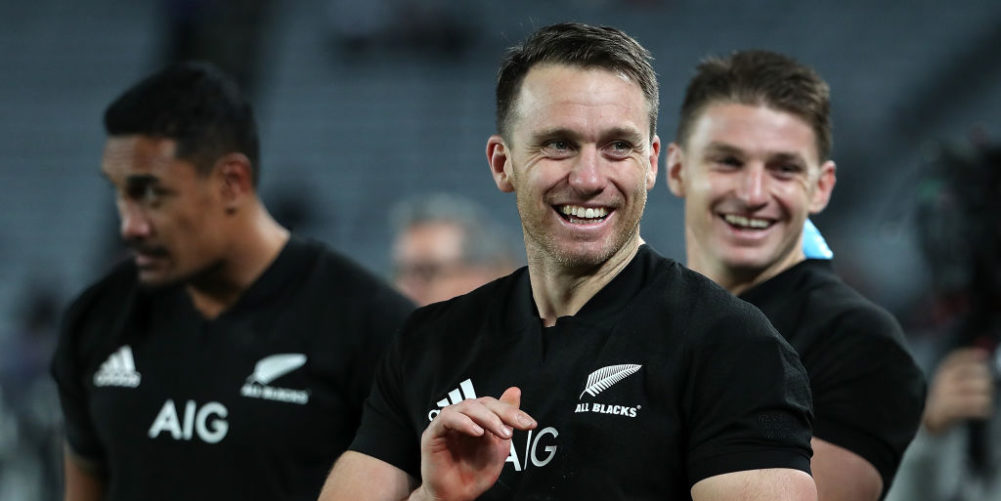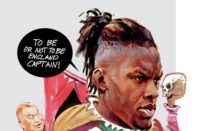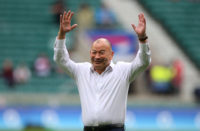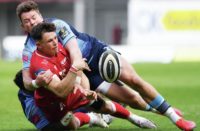World Cup-winning New Zealand full-back Ben Smith talks to NEALE HARVEY about the highlights of a stellar career, disappointment at Japan 2019, his decision to join Top 14 outfit Pau and the future of the All Blacks and Super Rugby.
How are you coping with lockdown in France?
We’re pretty lucky. I’ve got my wife and two kids and we decided to go and stay with my teammate, Luke Whitelock, and his wife Claire for lockdown. They live a wee bit out of Pau where there’s more space and a chance to roam a bit more freely with the kids.
Having a few fellow Kiwis at Pau must help?
Yes, we’ve got Luke, Tom Taylor, Colin Slade, and Daniel Ramsay, while Conrad Smith and Paul Tito are on the management team. I feel sorry for ‘Fish’ (Tito) because his family’s gone back so he’s in lockdown by himself and doing it tough. But he’s discovering the movie world and we’re all keeping in touch with him, which is important for a guy who’s so isolated. Not knowing how long this will last is frustrating for all of us but you can’t do much about it.
Why did you decide to join Pau?
I got a good insight because of the people I knew who were already here. They’re great guys who said it was a good club and the thing I liked is that Pau were a side that over the last few years have managed to get into the Top 14 and are now fighting to move their way up. At all clubs it’s about who you’re playing alongside and who you play for on the coaching side, and as a place it was a good opportunity for us to do some travelling. We’re pretty close to places like Bordeaux, Biarritz, Andorra and down into Spain so we’d planned to have a good look around before all this stuff happened.
How tempted were you to stay in New Zealand and target 100 caps?
Not too tempted, I thought now was a good time to move on. I was 33 and at some point, you want a different challenge. I saw coming to Pau as fulfilling that challenge and a chance to spend some good time with my family after spending so many years on the international circuit in Super Rugby and with the All Blacks. I really enjoyed my time in New Zealand but just felt it was the right time to do something else.
You amassed 84 All Blacks caps, won a World Cup in 2015 and enjoyed a 90 per cent winning Test record… happy with that?
Yes, I loved my time with the All Blacks. Obviously not getting the job done at the 2019 World Cup and not having the impact I would like to have made personally was a shame, but when I look back on my career as a whole, in Super Rugby and club rugby as well, I was really lucky to meet great people, achieve what I did and get the experiences I have.
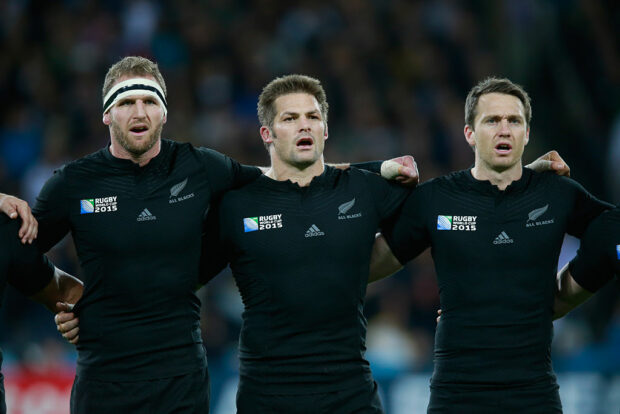
Steve Hansen opted to play Beauden Barrett at full-back for big games in Japan. How hard was it to then miss the quarter and semi-finals completely?
It was a disappointment but that’s just the way rugby goes sometimes and you have to take it on the chin. At that point I still had a role to play in trying to help the other guys prepare as well as they could and that was a responsibility I took very seriously to try and give us the best chance. Selection was in someone else’s hands and I had to just get on with it. The way I look at it, I was still lucky to be involved in a World Cup and although it didn’t go how we wanted, I still managed to contribute and to bow out with two tries and a big win over Wales was nice.
As a Kiwi, how hard was it losing that semi-final to the Poms?
Test matches against England are always special and I played in a fair few, but most people who watched that game will say they played better than us and deserved their win. The good thing about rugby in a World Cup is that whoever turns up on the day and plays the best rugby gets to go forward in the competition – and England well and truly did that in that semi-final.
Disappointment aside, I guess it’s healthy to see other sides winning and you’d like more teams to be competitive at World Cups?
Certainly. I thought the 2019 World Cup was very competitive, with Japan doing so well and so many other teams playing really good rugby. World Cups are really tough and even when we won it in 2015, I remember we were probably lucky to beat a good South Africa team in the semi-final. Things might not have gone our way at the end of that game, and then you look back to 2011 and the final against France when we had a wee bit of luck as well. That’s what I took from World Cups because the margins are so small between going forwards or going home. The thing I love about rugby is you can never take what’s happened before as an indicator, it’s all about what you do on the day. I remember how people were giving the French stick going into that 2011 final but they played out of their skins and nearly beat the All Blacks in Auckland, so I enjoy that aspect of rugby because it means you can never get complacent.
2019 was a low point for you, but what about the high of winning in 2015?
As a young fella you always dream about being at a World Cup so to go over to England and be part of that was very special. It was a really well-run tournament and I’ve got some good memories of that couple of months and the way New Zealand got right in behind us. My Highlanders team also managed to win Super Rugby that year which is another great memory, especially as someone who started out there in 2009 when we looked as though we could never make a final. We came a long way in six years so 2015 was an incredible period of my career.
Do you remember your All Blacks debut against Italy in 2009?
Yes, it was at the iconic San Siro stadium in Milan. It seems a long time ago now and I probably built my debut up in my head a bit too much at the time because it’s one thing making the All Blacks team and another thing holding your place and showing you deserve to be there. It took a while until I got my second cap in 2011, but what’s made the All Blacks so good over the years is how there are so many other good players who keep you on your toes.
Turning the clock back, who were your early heroes and mentors?
Being from Dunedin, growing up I had good characters to look up to like Tony Brown and Jeff Wilson, and there was another local legend, Dean Moeahu, who I played club rugby with at Green Island Rugby Club, which is where it started for me. He was much older but he had the same passion for the game that I did and we’d just go along to training and try to learn and get better. He played No.9 and I played No.10 at that stage so he probably set me on the right path. He was a big influence on me and everything starts in club rugby, although I guess others go straight into pro teams.
Your early career path took an overseas twist, didn’t it?
Yes. I actually came over to the UK straight from school in 2005 and played for Old Colstonians RFC in Bristol. It was a few grades down from the big stuff – Gloucester One, I think – but I enjoyed my time over there playing at 10. I worked at Colston’s Collegiate School doing PE and had a good time.
How did that come about?
I’d decided just to have a gap year after leaving school and there was a guy called Darryl Paterson, a Kiwi who ended up coaching at Colston’s, so I lived with him and his family for a year. Colston’s gave me a wee bit of money for helping them out, doing jobs where I was needed, and I was able to play rugby for Old Colstonians at the same time. It’s what makes rugby so good because it was just about playing good footy on a Saturday and then enjoying a few beers back at the club. Colston Collegiate had some really good players who came through and played for England, so it’s a part of my career I’ll look back upon fondly and one that stood me in good stead.
Did playing as a No.10 help you later in your career?
Definitely. Switching into the back three after returning to New Zealand, it gave me a really good handle on what your 9s and 10s are doing so you can get into the right spots. I could play full-back and wing and that probably added to my game, too. While there’s still room for an out-and-out winger, with the way the game is heading you end up playing in different positions anyway so having that appreciation of a number of positions helped me contribute to all my teams.
Touching on the last World Cup again, South Africa won it by fielding some European-based players. Should New Zealand now follow suit?
I actually agree with the fact that if you want to play for the All Blacks, you need to be in New Zealand. I think that makes our game a lot stronger within New Zealand. It’s good for the franchises in Super Rugby and it also gives guys a tough decision knowing that if they choose to leave, they’re leaving the All Blacks behind. How we’re managing it at the moment is right and as a player it makes things pretty clear-cut. It’s the best thing for rugby back home because it keeps our competitions strong at all levels.
How do you rate the strength-in-depth of NZ rugby, particularly at full-back now you’ve left?
There’s always a lot of depth within New Zealand and whenever someone leaves it provides opportunities. You’ve seen it at the Crusaders where guys keep popping up who no one’s really heard of and play out of their skins. As for full-backs, I think David Havili was playing really well before rugby stopped. Jordie Barrett’s in there as well, as is his brother, Beauden, while Damian McKenzie’s fit again after injury. There’s no shortage of options depending on what head coach Ian Foster wants to do around his playmaker role.
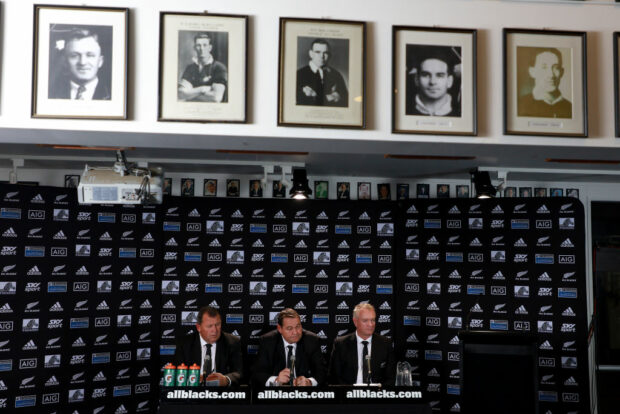
How will Ian Foster pick things up after Steve Hansen’s long reign?
Fozzie’s a good man. He’ll probably be a bit different to Steve and will bring his own flavour to the All Blacks. He’s got a different management team and there was probably a need to freshen up a few things after the World Cup, so that new coaching group will take the learnings from 2019 around how things might have been done better and Fozzie will lead the charge. He’s a good coach and a smart man who will quickly get the environment how he wants it. Before you even start playing footy you need to make sure everything off the field is running smoothly and, with the way he coaches, he wants to play a good brand of rugby that people want to watch. He’ll want to play a style that’s exciting and innovative and that will be a big part of how he approaches it.
Super Rugby appears to be at a crossroads, do you fear for its future?
It’s certainly going to be interesting to see what happens in the next year or two, especially with the current lockdown and how they come back out of it. You’re hearing about what’s happening with Rugby Australia and in South Africa and wonder how things might work out, but I really enjoyed my time in Super Rugby and I hope the link between New Zealand, South Africa and Australia stays. At the same time, though, I think something needs to be worked out where the southern hemisphere links up better with the north in terms of timings and competition. I don’t know exactly what that looks like but someone’s going to have to sacrifice something in order to align. It would be great to see a competition that culminates in the best teams playing against each other.
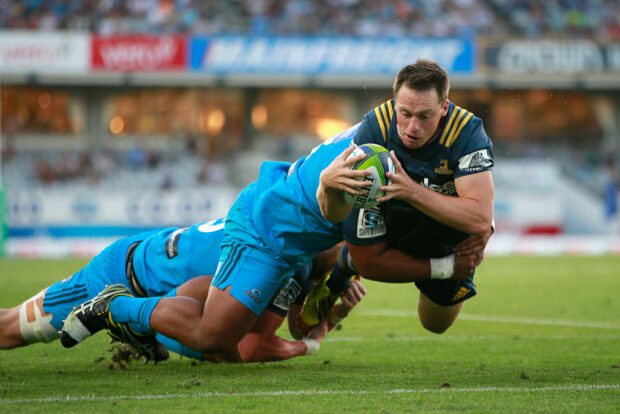
What do you think of talk of a Club World Cup?
Clubs are struggling financially so as players you’d be pretty open to anything being chucked on the table to try and make sure the game everyone loves stays alive and provides joy to people.
You only managed seven games for Pau before the shutdown, but what are your early impressions of French Top 14 rugby?
Well, my first experience was a red card on debut at Stade Francais so that wasn’t great! I probably didn’t understand coming over to France how playing home and away would be so different. I always wondered why French teams didn’t perform as well away but I quickly picked up how the crowds get into it. It’s a lot different to back home, a lot more vocal, and with the way games are set up with big screens in the corners, whenever anything happens the home crowds, right or wrongly, manage to get the referees on their side. It just makes it harder playing away and I now know why over 75 per cent of matches in the Top 14 are won by the home side.
What else have you noticed about French rugby?
The game here is not quite as fast as Super Rugby but it’s more physical. Maybe the conditions have a wee bit to do with that and there’s definitely more emphasis on the set-piece, but I’ve actually really enjoyed competing in the Top 14 so far. It’s just a bit of a bugger that everything’s been shut down because we had some big games coming up that could have propelled us up towards mid-table. Like everyone else right now, we’re just hoping things can get back to normal.

